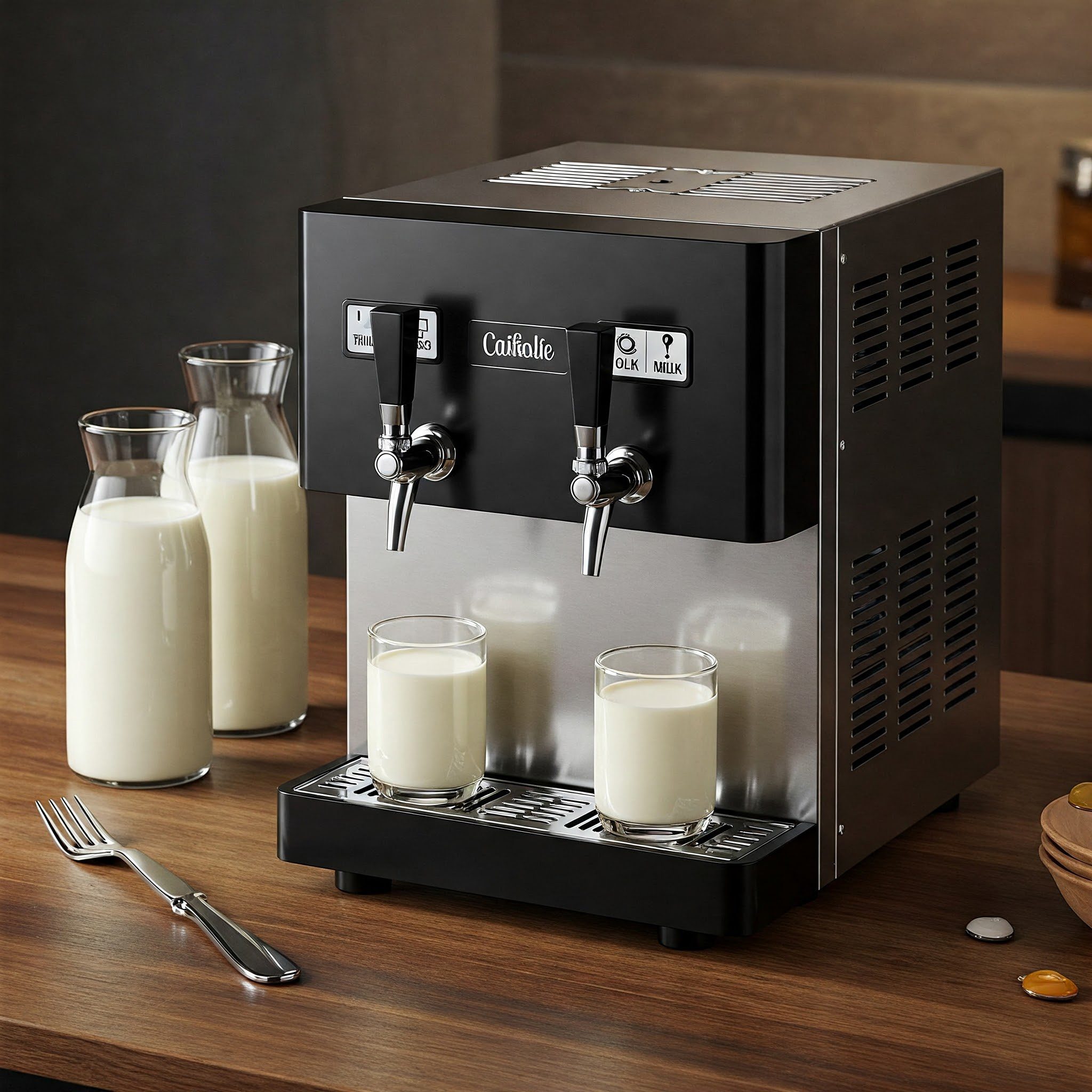Milk Pergals: The Efficient Solution for Bulk Milk Dispensing
Milk pergals are a cost-effective and eco-friendly solution for storing and dispensing large quantities of milk in cafés, restaurants, schools, offices, and catering businesses. These bulk milk systems reduce packaging waste, improve efficiency, and ensure consistent milk freshness while making dispensing quick and convenient.
Whether you run a coffee shop serving high volumes of milk-based drinks or need an efficient milk supply for a busy canteen, choosing the right milk pergal system can streamline operations and reduce costs.
What Are Milk Pergals?
Milk pergals are bulk milk dispensing systems that use a large, bagged milk container (usually 3 to 13 liters) stored inside a refrigerated unit. The milk is dispensed through a tap or pump system, eliminating the need for multiple small milk cartons or bottles.
They are commonly used in:
- Cafés and coffee shops – For high-volume milk-based drinks like lattes and cappuccinos.
- Schools and hospitals – To provide fresh milk in cafeterias.
- Offices and workplaces – For easy milk access in tea and coffee stations.
- Hotels and buffets – To serve milk efficiently at breakfast service.
- Catering businesses – For large-scale food service operations.
Types of Milk Pergals
1. Standard Milk Pergals
- Description: Basic milk dispensers that hold a large milk bag inside a chilled unit with a simple pouring tap.
- Best For: Small cafés, restaurants, and office kitchens.
- Example Items: Fresh whole milk, semi-skimmed milk, plant-based alternatives.
- Advantages:
- Compact and easy to use.
- Reduces milk wastage.
- Cost-effective alternative to individual milk cartons.
2. Refrigerated Milk Pergals
- Description: Temperature-controlled dispensers that keep milk chilled at an optimal temperature.
- Best For: Cafés, coffee shops, and high-traffic catering services.
- Example Items: Dairy milk, oat milk, soy milk.
- Advantages:
- Keeps milk fresh and at a safe serving temperature.
- Prevents spoilage and bacterial growth.
- Ensures consistent milk quality throughout the day.
3. Countertop Milk Pergals
- Description: Compact, space-saving dispensers designed to sit on counters for quick access.
- Best For: Offices, small coffee stations, and self-serve areas.
- Example Items: Cold dairy milk, almond milk, flavored milk.
- Advantages:
- Small and easy to install.
- Perfect for tea and coffee stations.
- Easy to clean and maintain.
4. Automatic Milk Pergal Dispensers
- Description: High-tech systems that automatically dispense milk in pre-measured amounts at the push of a button.
- Best For: High-volume commercial kitchens, self-service buffets, and fast-paced cafés.
- Example Items: Standard dairy milk, barista-grade milk.
- Advantages:
- Reduces manual handling and speeds up service.
- Helps maintain portion control.
- Minimizes spillage and waste.
5. Multi-Tap Milk Pergals
- Description: Dispensers that accommodate two or more milk types, allowing users to select different options.
- Best For: Hotels, buffets, and specialty cafés offering multiple milk choices.
- Example Items: Whole milk, skimmed milk, oat milk.
- Advantages:
- Allows customers to choose their preferred milk.
- Ideal for locations with diverse dietary preferences.
- Saves space compared to using multiple individual milk cartons.
Key Features of Milk Pergals
- Capacity – Available in 3L to 13L milk bag sizes for different serving needs.
- Temperature Control – Some models feature built-in refrigeration to maintain freshness.
- Dispensing System – Manual tap, gravity-fed, or automatic dispensing options.
- Eco-Friendly Packaging – Uses biodegradable or recyclable milk bags instead of plastic bottles.
- Space-Saving Design – Many models are compact and fit into tight kitchen or countertop spaces.
- Energy Efficiency – Modern dispensers use low-energy cooling systems to reduce electricity costs.
Applications of Milk Pergals
- Coffee Shops and Cafés – For quick and efficient milk dispensing in high-traffic environments.
- Schools and Canteens – To provide fresh milk to students in a cost-effective way.
- Hotels and Buffets – To allow guests to serve themselves during breakfast.
- Workplaces and Offices – For tea and coffee stations to eliminate the need for individual milk cartons.
- Catering Services – For bulk milk supply in large-scale food production.
Benefits of Milk Pergals
- Reduces Packaging Waste – Uses large milk bags instead of multiple small cartons, reducing plastic waste.
- Cost-Effective – Bulk milk purchases are cheaper than buying individual bottles.
- Maintains Freshness – Refrigerated models keep milk at an optimal temperature for extended periods.
- Speeds Up Service – Dispensing is faster than handling individual milk bottles.
- Eco-Friendly – Many systems use biodegradable milk bags to reduce environmental impact.
- Easy to Use – Simple tap or push-button dispensing eliminates spillage and manual pouring.
Maintenance Tips for Milk Pergals
Daily Maintenance
- Clean the dispensing tap to prevent milk residue buildup.
- Ensure milk is stored at the correct temperature (0-5°C / 32-41°F).
- Wipe down the exterior to maintain hygiene.
Weekly Maintenance
- Deep clean the dispenser’s interior and replace milk bags as needed.
- Inspect seals and tubing for leaks.
- Check for unusual odors, which may indicate bacterial growth.
Monthly Maintenance
- Sanitize all removable parts to maintain food safety.
- Clean condenser coils (for refrigerated models) to improve cooling efficiency.
- Ensure all dispensing mechanisms are functioning smoothly.
Troubleshooting Common Issues
1. Milk is Not Dispensing Properly
- Cause: Airlock in the milk bag or clogged spout.
- Solution: Gently shake the milk bag and clean the dispensing nozzle.
2. Milk is Spoiling Quickly
- Cause: Incorrect storage temperature.
- Solution: Check the thermostat and ensure consistent cooling at 0-5°C (32-41°F).
3. Leaking Milk Dispenser
- Cause: Faulty seals or improper installation of the milk bag.
- Solution: Inspect the seals and ensure the bag is securely in place.
4. No Milk Flow
- Cause: Empty milk bag or kinked tubing.
- Solution: Replace the bag and straighten any bent tubes.
Choosing the Right Milk Pergal System
Factors to Consider:
- Capacity Needs – Small cafés may require a 3L pergal, while busy hotels may need a 13L+ system.
- Refrigeration – Decide between non-refrigerated models for quick use or chilled dispensers for longer storage.
- Dispensing Method – Choose between manual, gravity-fed, or automatic push-button models.
- Milk Type – Consider models that support dairy and plant-based milks if needed.
- Space Availability – Countertop vs. freestanding dispensers depending on kitchen setup.


